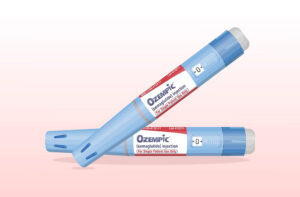Food poisoning occurs when someone eats food that contains a parasite, bacterium, or virus that makes him/her ill. The symptoms could show up within a few hours of eating the contaminated food, and sometimes it can be severe enough to require hospitalization.
Food poisoning typically causes nausea, vomiting, and diarrhea. This post will address questions like “What are the common types of food poisoning?” “Can food poisoning cause vertigo or dizziness?” and “How do I treat food poisoning?”
Symptoms of Food Poisoning
Food poisoning typically causes nausea, vomiting, and diarrhea — often at the same time. A fever and abdominal pains may also accompany the illness. The symptoms of food poisoning can start within a few hours of eating the contaminated food, or several days later, depending on the source and the underlying virus or bacterial strain.
Three Most Common Types of Food Poisoning
There are a number of food-borne organisms that can cause food poisoning. The three most common are:
-
Campylobacter — Typically found in undercooked meat and seafood, this bacterium causes headaches, dizziness, and fever accompanied by stomach pains and diarrhea, which can be bloody. The bug can take one to 10 days before symptoms occur.
-
Salmonella — This group of bacteria comes from raw or undercooked eggs, meat, and poultry. This bug takes between 12 and 48 hours to develop and causes fever, vomiting, and stomach pain.
-
E. coli — This bacterium produces symptoms 12 to 36 hours after eating undercooked meats, unpasteurized dairy products, and unpasteurized juices. It triggers diarrhea, stomach pains, and potential vomiting.
What Causes Food Poisoning?
Food poisoning occurs when you ingest food that is contaminated with one of the organisms listed above or other harmful organisms. The contamination can occur at any point during the production of the food, from the initial growing time to the harvesting, processing, storing, shipping, or even when cooking the food. Sometimes, food can be contaminated by other foods in the same space, such as produce coming in contact with raw chicken in the kitchen.
Can Food Poisoning Cause Dizziness?
Yes, food poisoning can indeed lead to dizziness. This symptom, often referred to as food poisoning dizziness, can occur as a result of the body’s reaction to harmful bacteria, viruses, or parasites found in contaminated food. When you ingest such contaminated items, your body works hard to fight off the infection, which can lead to dehydration from symptoms like vomiting and diarrhea. This dehydration is a common cause of dizziness.
Additionally, the release of toxins by the infectious agents can directly impact your well-being, making you feel dizzy. So, if you’re wondering, “Can food poisoning make you dizzy?” the answer is yes, it’s a recognized symptom that can accompany the nausea, vomiting, and abdominal pain typically associated with foodborne illnesses.
What to Do if You Notice Symptoms of Food Poisoning
If you notice symptoms of food poisoning, you may be able to stay at home until the symptoms pass. Home treatment for food poisoning involves drinking fluids and resting.
However, if the infected individual cannot keep down liquids or has blood in the stool or vomit, seek medical attention, right away.
Also, any signs of dehydration, including the inability to cry, little to no urination, or severe weakness or dizziness, warrant a trip to the doctor. Food poisoning treatment involves protection against dehydration and, in the case of bacterial food poisoning, antibiotic treatment.
When dealing with the effects of food poisoning, the last thing you want is to spend hours waiting in an emergency room. Aayu Clinics offers the benefits of an urgent care clinic with the prices of a regular doctor’s visit. Come to Aayu Clinics to be treated quickly for food poisoning.
How Does Aayu Clinics Treat Food Poisoning?
At Aayu Clinics, our approach to treating foodborne illness is swift, comprehensive, and patient-centered. Understanding the urgency of food poisoning cases, our team is prepared to deliver immediate care to alleviate symptoms and address the root cause of the illness. Here’s how we manage cases of food poisoning:
Immediate Response and Treatment:
- Rapid Resuscitation: Upon arrival, efforts are made to stop patients from vomiting, including the administration of anti-nausea medication and IV fluids within 10 minutes.
- Continuous Monitoring: Patients are closely monitored to ensure vomiting ceases and they can retain fluids, specifically 2-3 glasses of water before being considered for release.
Diagnostic Tools and Facilities:
- Comprehensive Assessment: We quickly differentiate between gastroenteritis, food poisoning, and food allergies, which is crucial for determining the appropriate treatment path.
- Advanced Testing: For cases requiring further investigation, such as potential food allergies, we utilize allergy panels and advanced allergy testing to identify specific triggers.
Holistic Care Approach:
- Root Cause Treatment: Our motto, “treat the root cause,” guides our holistic care approach, ensuring we address the underlying issues contributing to the illness.
- Educational Support: Patients receive education on how to prevent food poisoning, including tips on preparing food safely, the importance of washing your hands before eating or drinking, and proper storage of cooked foods and dairy products.
Special Considerations:
- Vulnerable Groups: Special care protocols are in place for pregnant women and individuals with a weakened immune system, who are at a higher risk for severe complications from foodborne illnesses.
- Follow-Up Care: Depending on the diagnosis, follow-up care via telemedicine is arranged to ensure recovery and to provide further guidance on diet management and prevention strategies.
By focusing on rapid treatment to alleviate poisoning symptoms, such as bloody diarrhea, and offering comprehensive follow-up care, Aayu Clinics ensures that each patient receives the highest standard of care for food poisoning. Our commitment to patient education also plays a critical role in preventing future cases of food poisoning, empowering our patients with the knowledge to safely enjoy eating and drinking with minimal risk.







